One thing lock down has provided is time to review piles of old stuff I’ve accumulated over the last few years. Namely boxes of slides negatives and photos I pick up for a few quid here and there in junk shops, or get given occasionally. All rescues anyway, this one came from a shop on Magdalen Street at some point last year, I went in and looked at a pile of slightly overpriced 1950s Ilford Sportsman and Kodak 127 cameras with jammed shutters and a that peculiar carpet of stuck on dust permeated with the woody smell of ancient cigarette smoke.
As usual I ended up riffling through a few boxes of photos, something I really miss at the moment. This is the crate digging of the photography and history obsessive. Anyway, I pulling out a packet of mixed photos and postcards which had a fair price on it; one print of the Norwich Floods in 1912 and a ration book secreted in there made it worth the massive spend, two quid, a bargain. The counter is a glass affair. There were badges, so I bought one to add to the other badges I have randomly hidden in drawers and boxes all over the place. I proffered my cash to the very quiet chap who runs it, he looked at me and said ‘I got some negs you moight loike’, and waved two envelopes at me ‘Mustly moterboikes hentut’, he was right I loiked them, he suggested fifteen quid for the lot and I laughed and waved a tenner at him, and he grimaced and then smiled and took it and we said ‘chair hoe’, and I’d got some stuff to tuck in a drawer where it would have remained until I die suddenly under a landslip of all this shite I’ve bought for two quid, except this virus happened. And now instead of going to the pub, I either go for a walk or churn through some scans like I used to and stick them on Instagram or on here, or both.
Scanning old unseen material like this is magical, you lay them on the scan bed, or load them into the scanner cartridge, you get this revelatory moment, where a black and white negative where you can only vaguely see the image as a reflection in the halide in a certain light, or a tiny slide suddenly reveals itself on screen to you in all it’s grainy detailed beauty. It reminds me of the various times in the past I’ve bothered either using or having a darkroom, because there is something uncanny and beautiful about watching prints manifest themselves on a thin coating of silver salts, swimming in some alkaline dev, the acid stop holding it there and biting your sinuses under the red light, before you fix it in place as an image. In some ways it’s not much different, scanning is watching ghosts appear on a screen, kind of magical and revelatory at the same time, the detail, the sudden actuality of a moment frozen.
There are, with these, packet clues; stapled on to the paper packets from K.P. Camera Shop, 12a King’s Parade, Cambridge, the subs slips. These are dated 22/4/63 and 11/4/64, so we know roughly where and when they probably came from. The gap in dates indicates the photographer returned to the shop, perhaps a regular. The customer’s name was Chapman, I assume they were local-ish to Cambridge. What’s also nice is the camera shop in which these were developed is one I’m all too familiar with myself, it’s Campkins now. I occasionally go in and look at the second hand cameras; the last time I went in there was a rather lovely Canon IV from about 1950 which had I the money I’d have bought. A beauty, no dust or smell of old fags either. So we’ve trod the same ground me and the Chapmans and I always like that connection via our feet on the pavement as much as I do via someone else’s eye, we exist inside ourselves, these photos are what he saw inside his head, he froze those memories outside himself, these dead leaves and dust and litter are where they walked.
These are nice, shot on Ilford HP3 and Kodak Pan, they’re quite grainy. Whoever took them was reasonably accomplished. One whole roll is dedicated to shooting motorbikes at a motocross event somewhere I’ve not been able to identify, Cadders Hill in Lyng did occur to me fairly early on, but I think that was wishful thinking and another story. That’s since been dismissed by some provided evidence, so it’s probably nearer Cambridge I’d assume. He’d put in a bit of effort, some of the bikes are sharp, sweeping the camera with the bike in frame, some of them aren’t, and from my own experience of trying to photograph moving horses years ago with a Japanese SLR loaded with FP4, I can confirm it’s not as easy as it looks and sometimes it’s better to allow a bit of ‘dynamism’ to sneak in, or blur as it’s also known. A lot of the other photos appear to be around St Ives, a fishing expedition; some spring piking, a few perch, one of which looks like a thumper, The mud, cold, gloom and dankness look the same, the clothing less familiar, the heavyweight of old waterproofs and cords that would mean an almost immediate near death experience should you fall in, unlike the modern lightweight, breathable, fishing gear as cult gang membership you get these days, it’s all oak leaf this and that now, only the price of fashion drowns you these days.
There’s an unidentified lake, boats, a bridge, a boat parts supplier and tackle store, all contained in this sense of Fenland life being more or less the same. The outriders a new Moulton bike displayed isolated and with owner, and some shots of a sewing machine as the person with the camera tried out different exposures presumably as a test. My favourite shot of all, forgetting the group of bikes with riders or the proudly displaying a double figure pike, or the motocross jumps, is teh lead in frame, that shot anyone who has ever owned a camera will recognise, you always see them, one frame half black half white, then one frame where the camera sis pointed across a scene, the shutter clicked and the film advanced taking in a scene that’s not intended to be recorded, a blurry row of pictures on a windowsill, a piano, some books, a towel draped over the handle of a pram, inconsequential, but never a frame wasted.

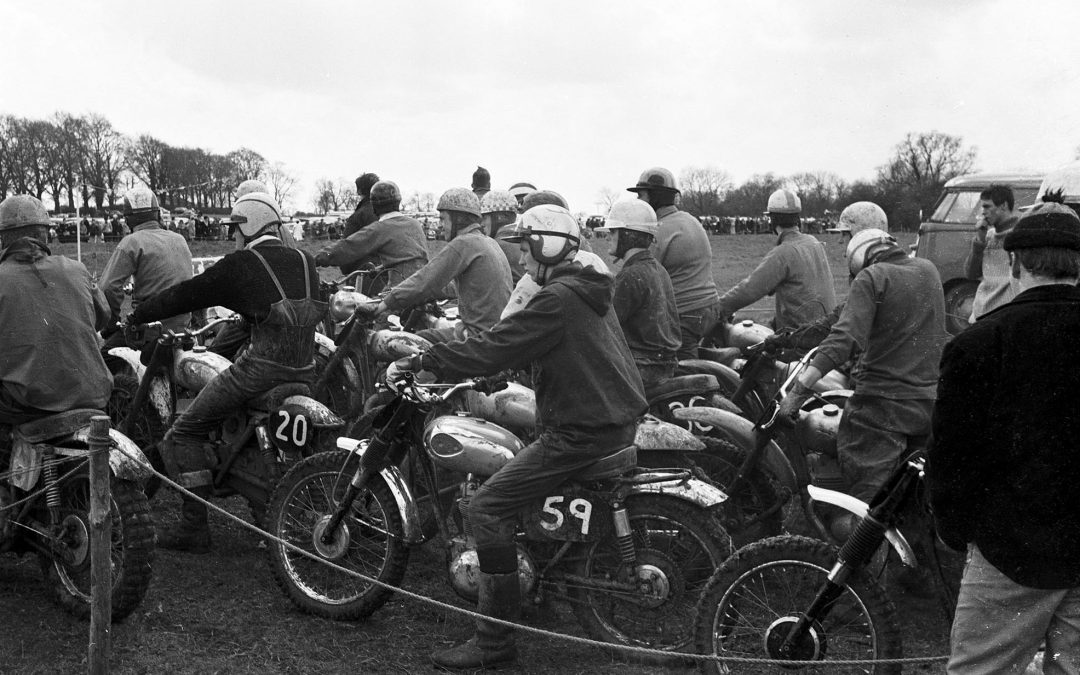
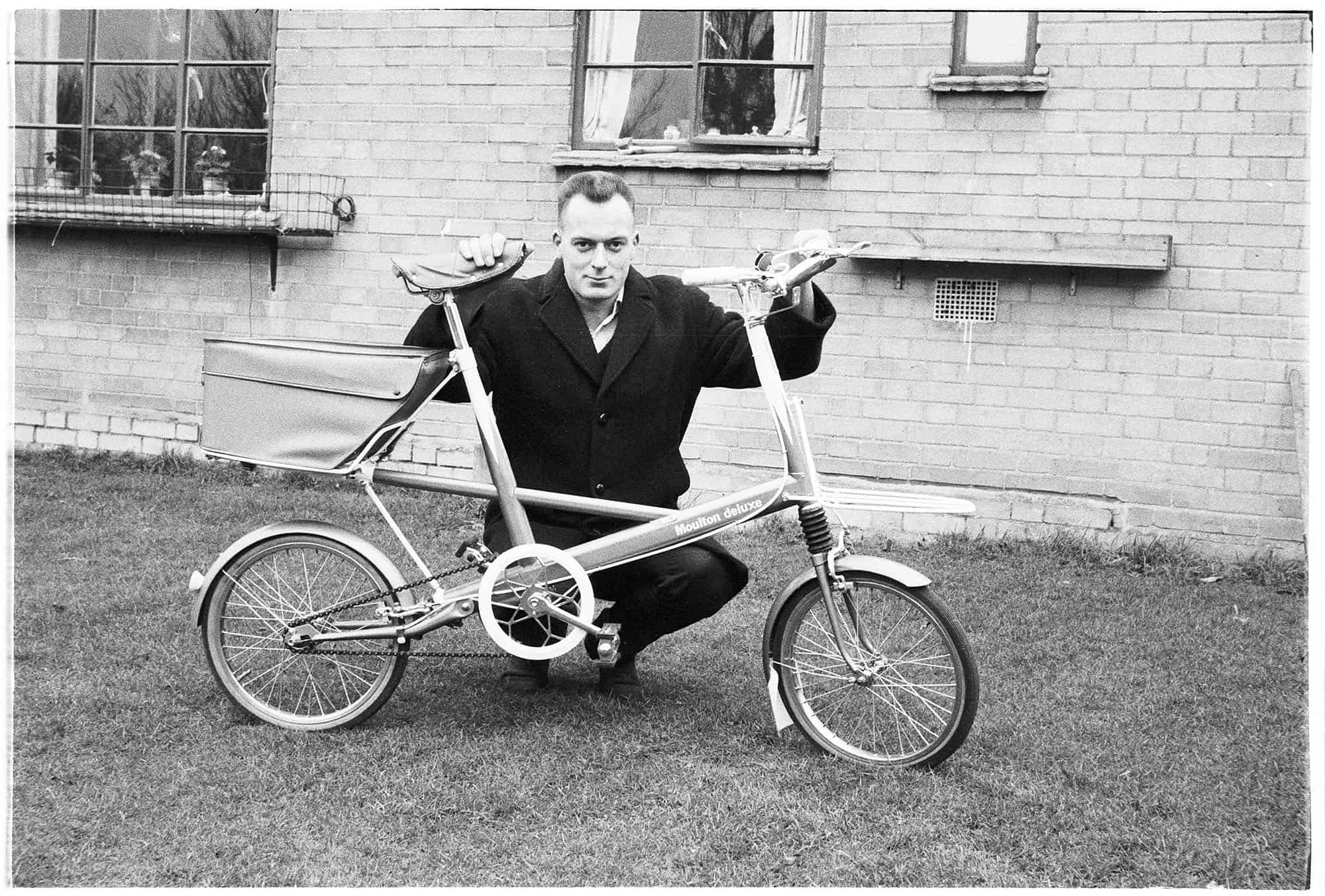
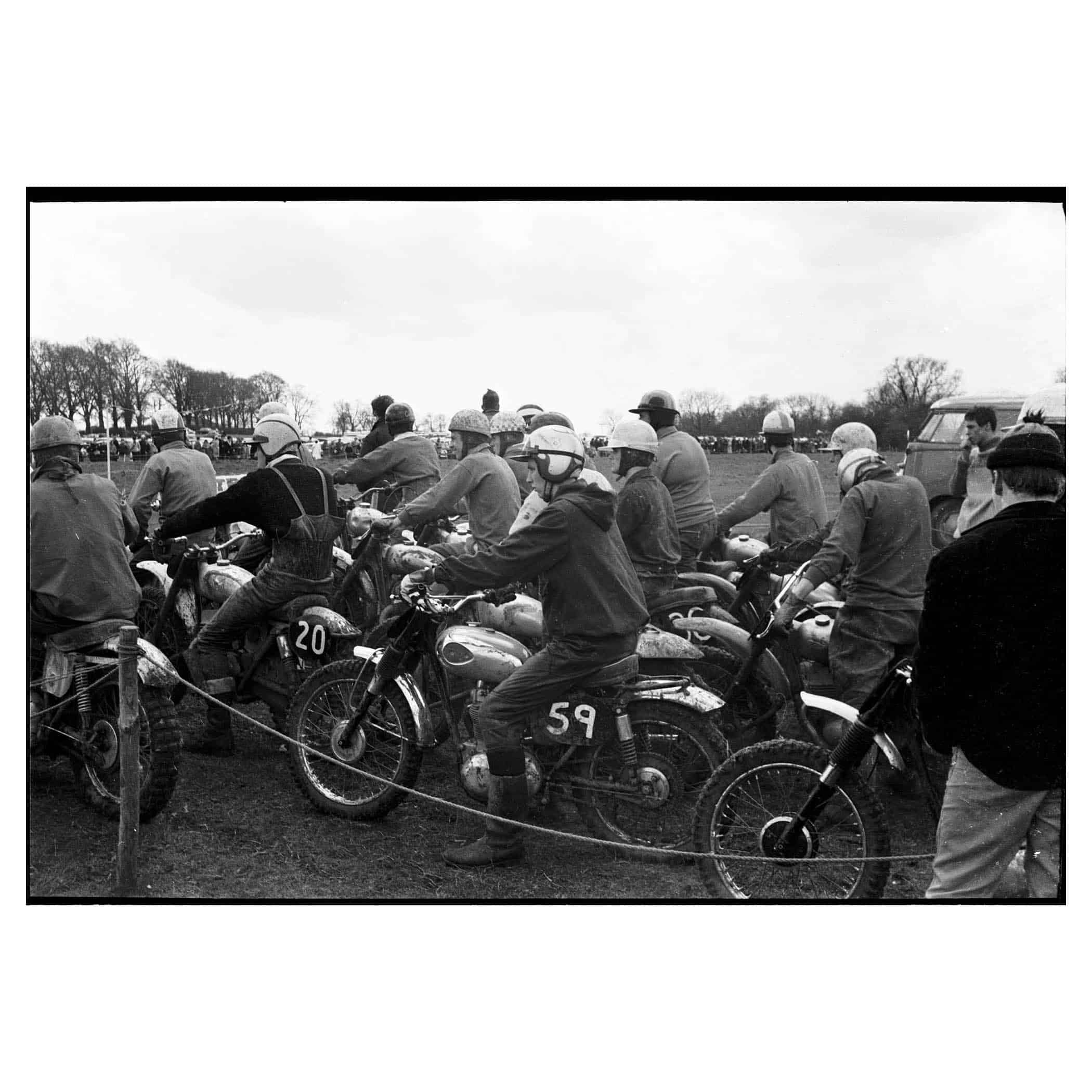
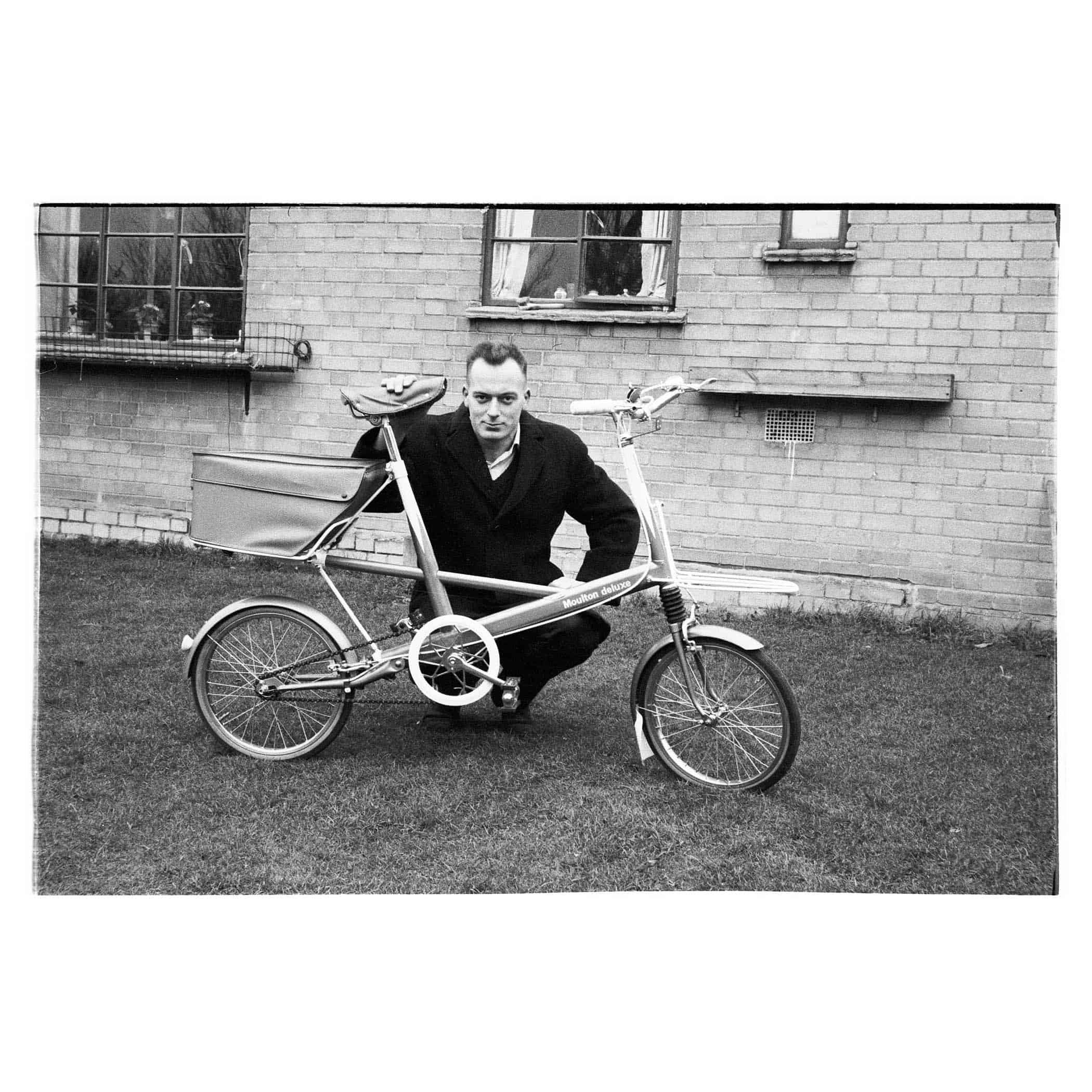
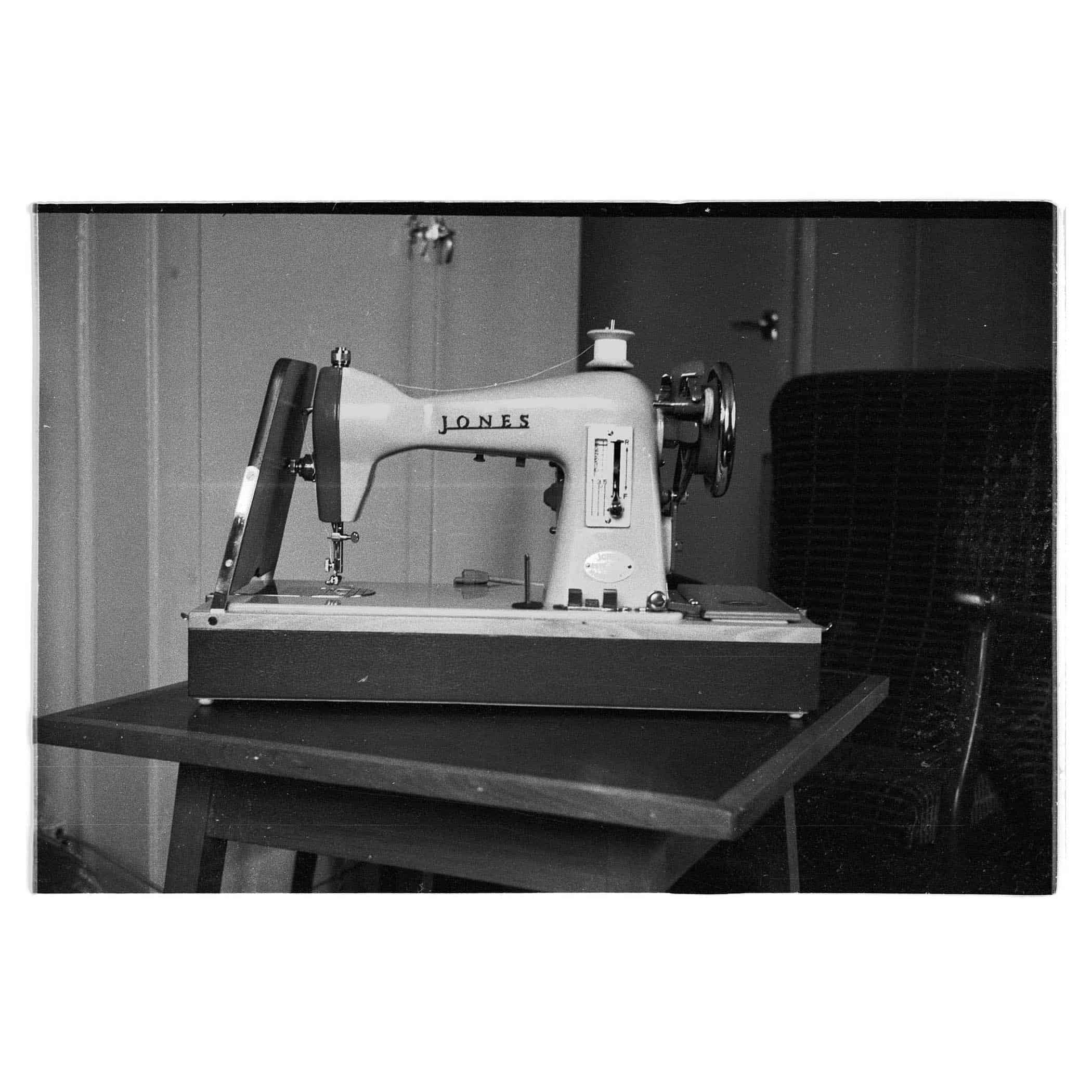
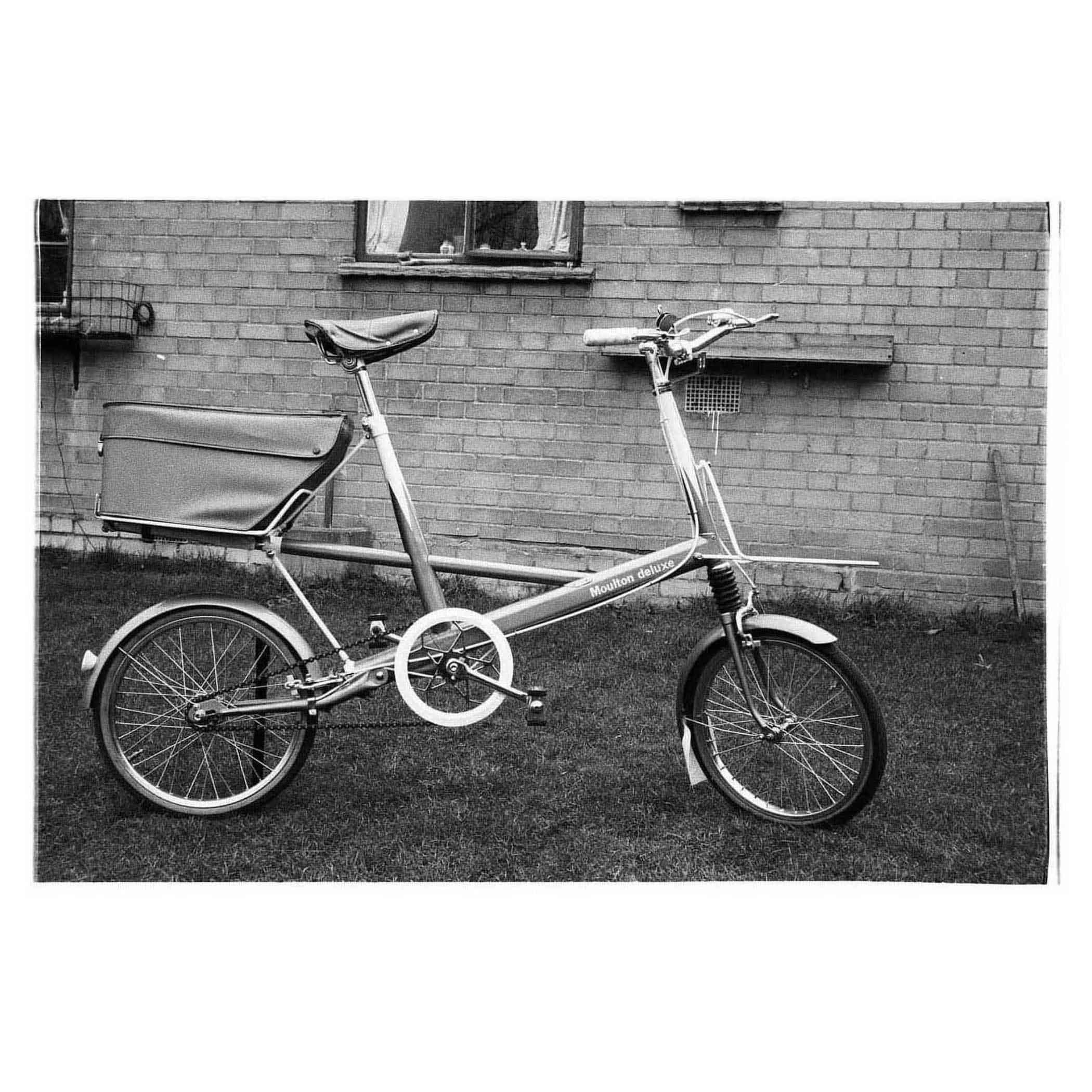
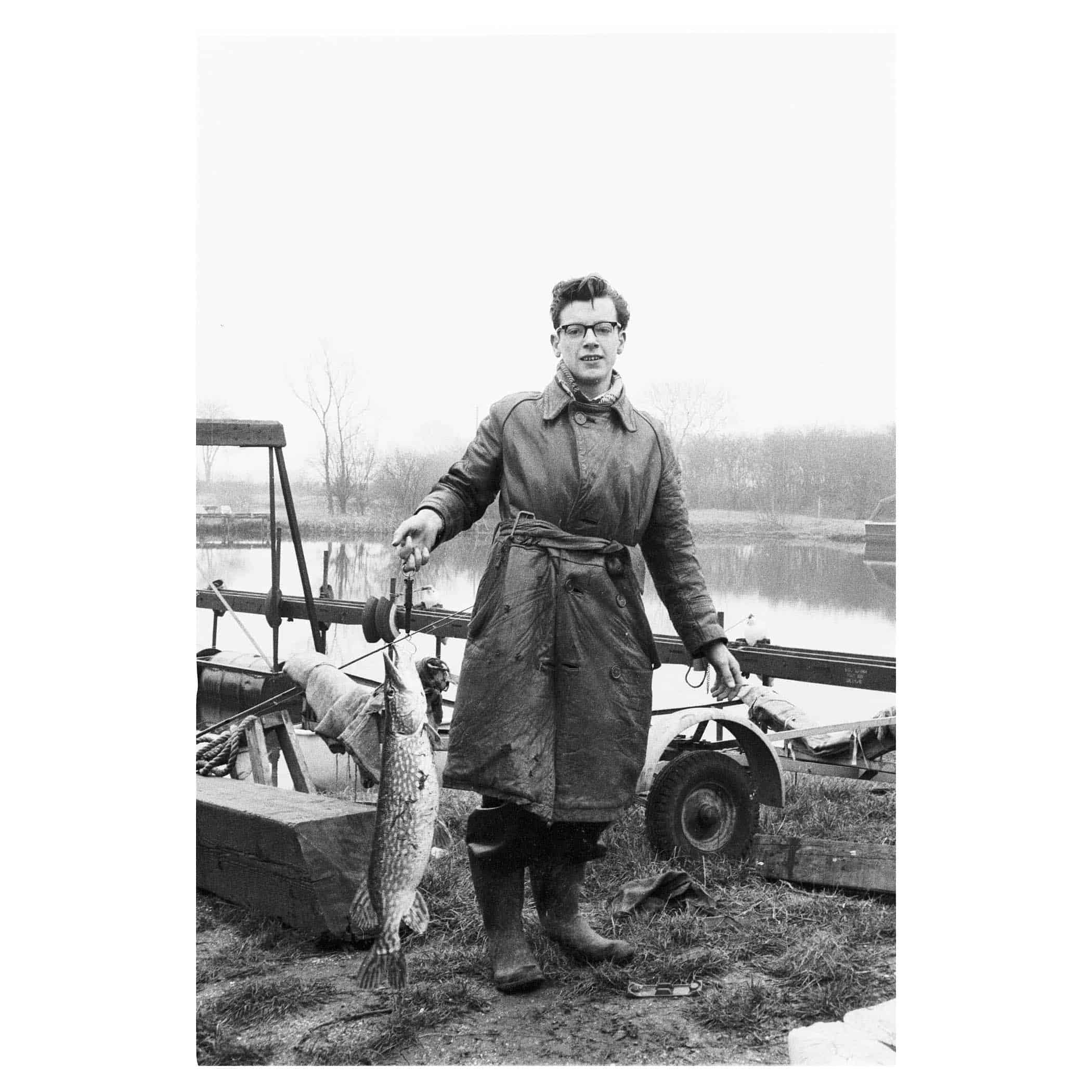
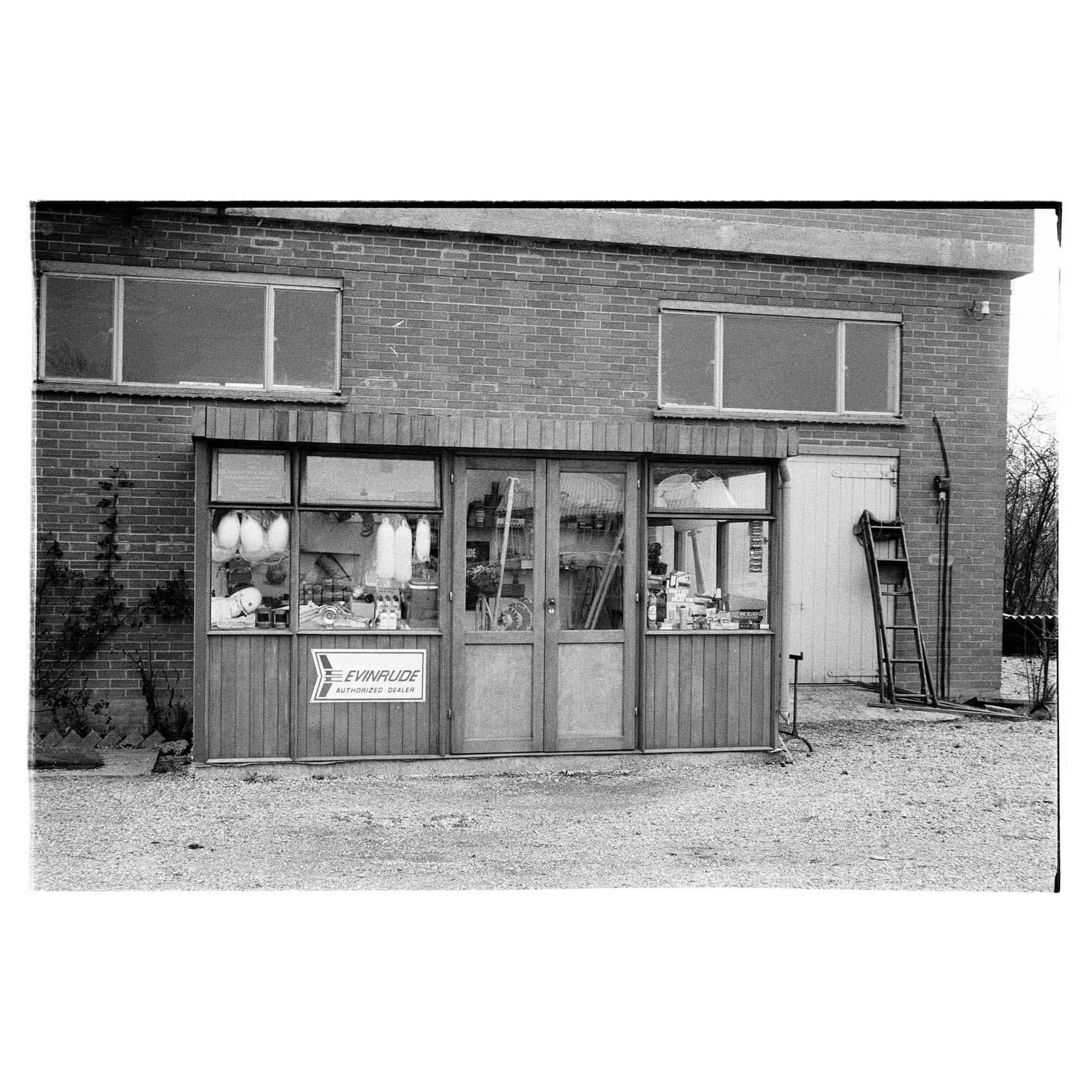
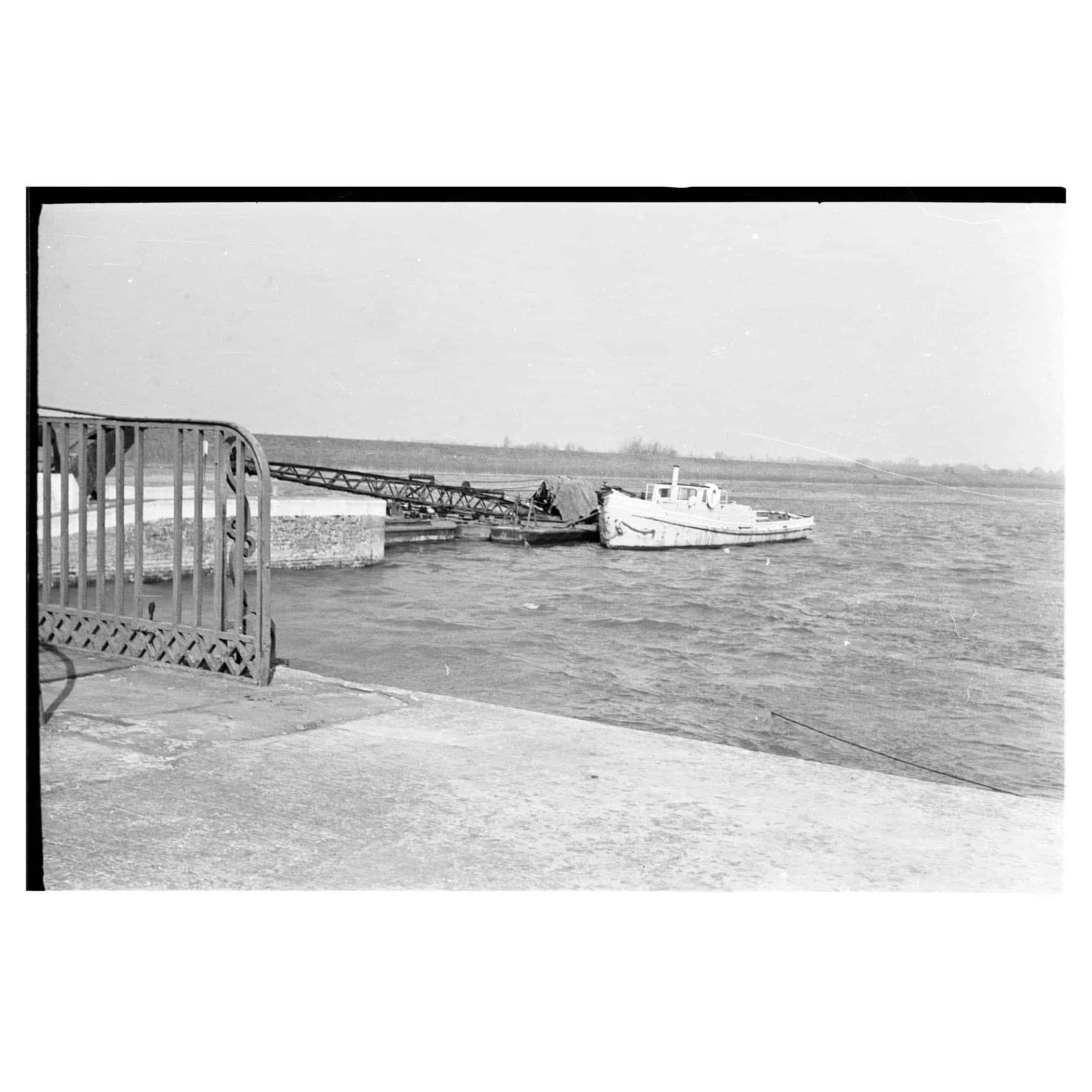
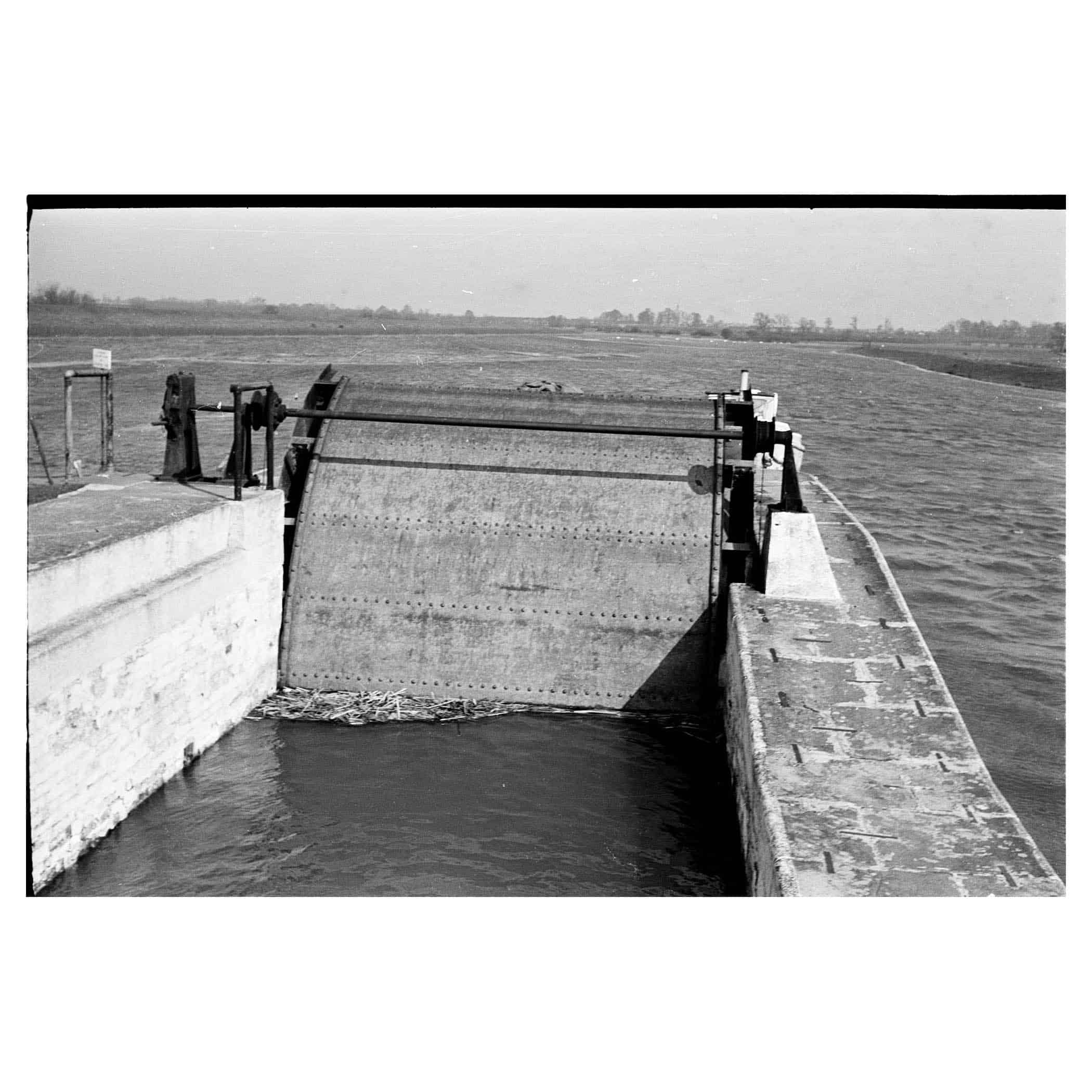
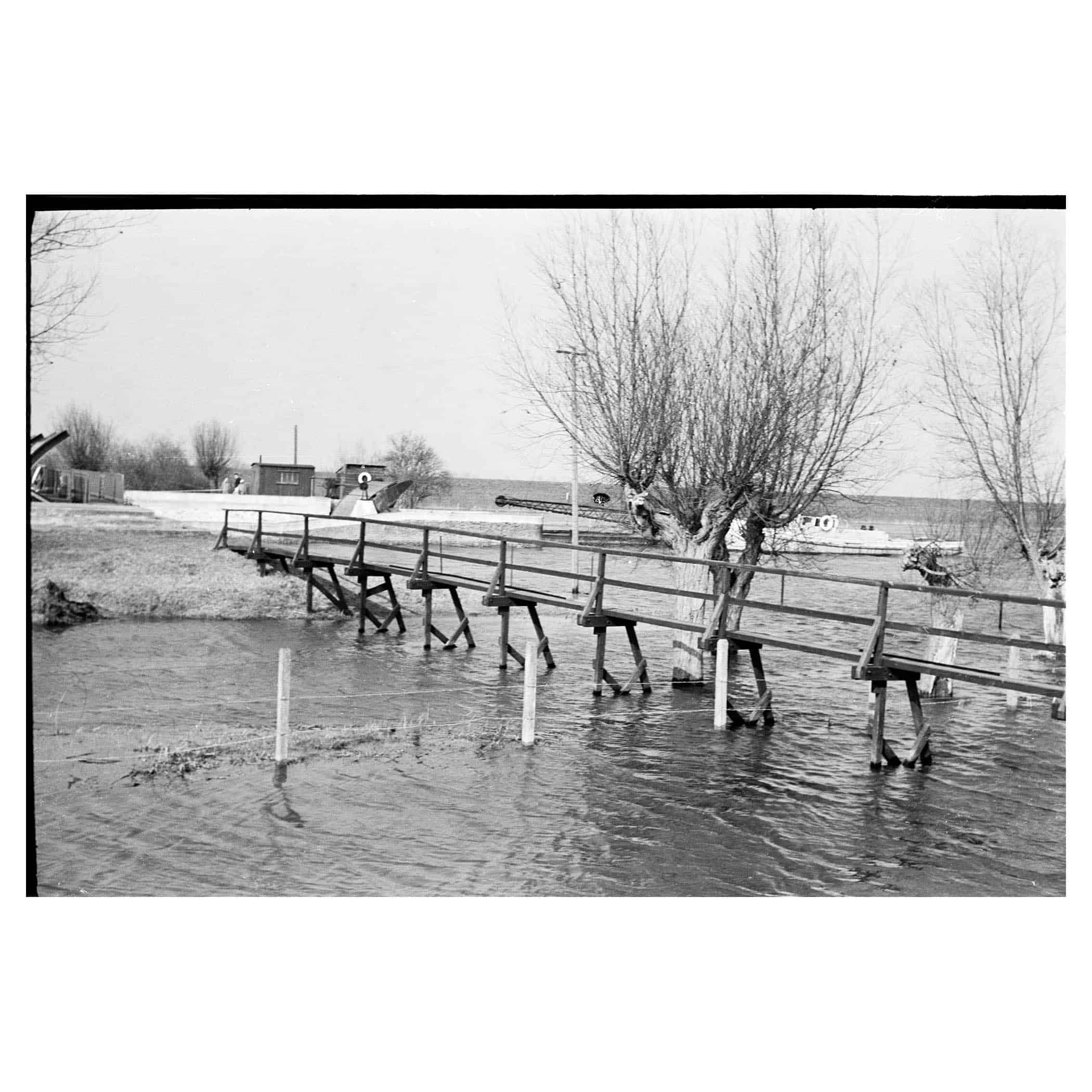
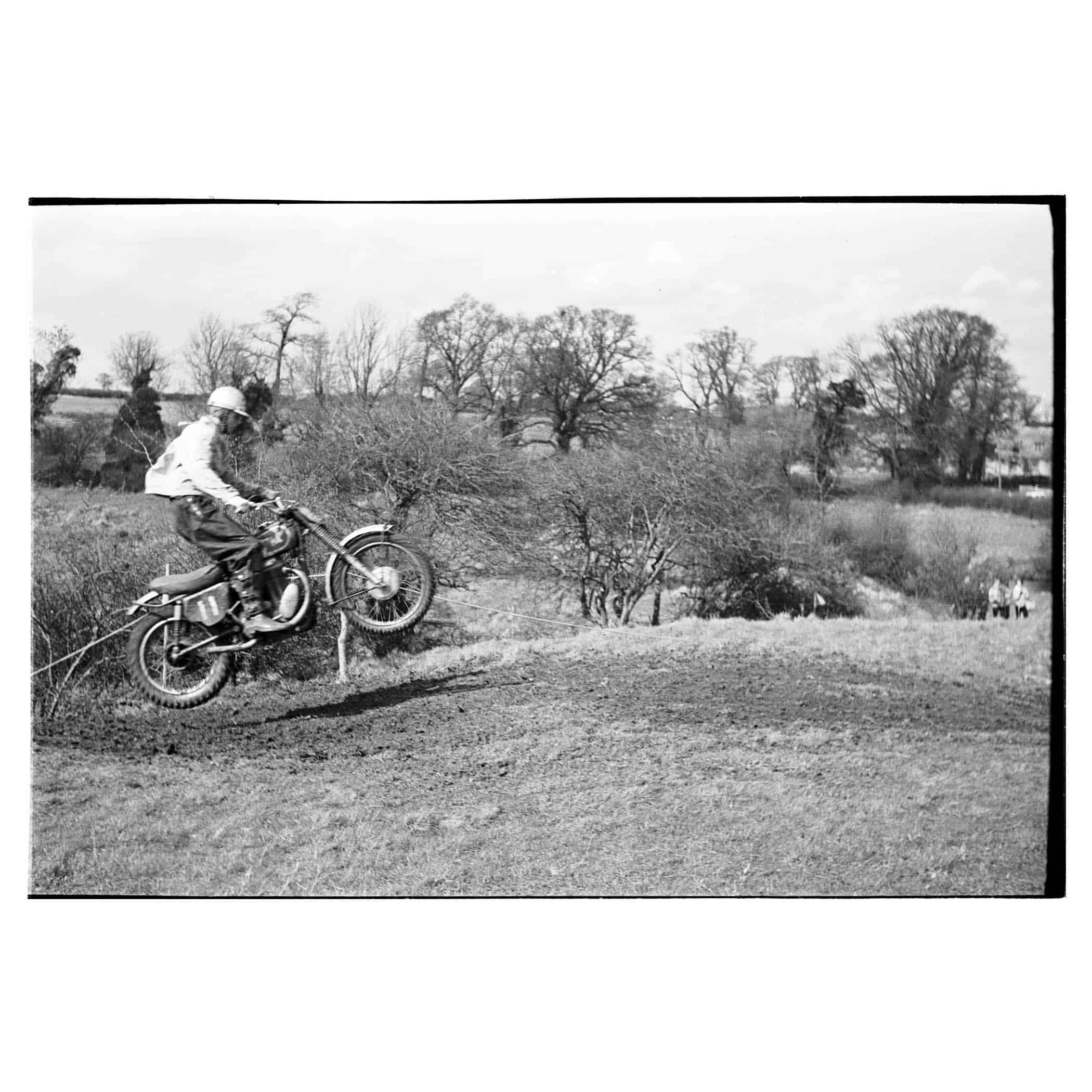
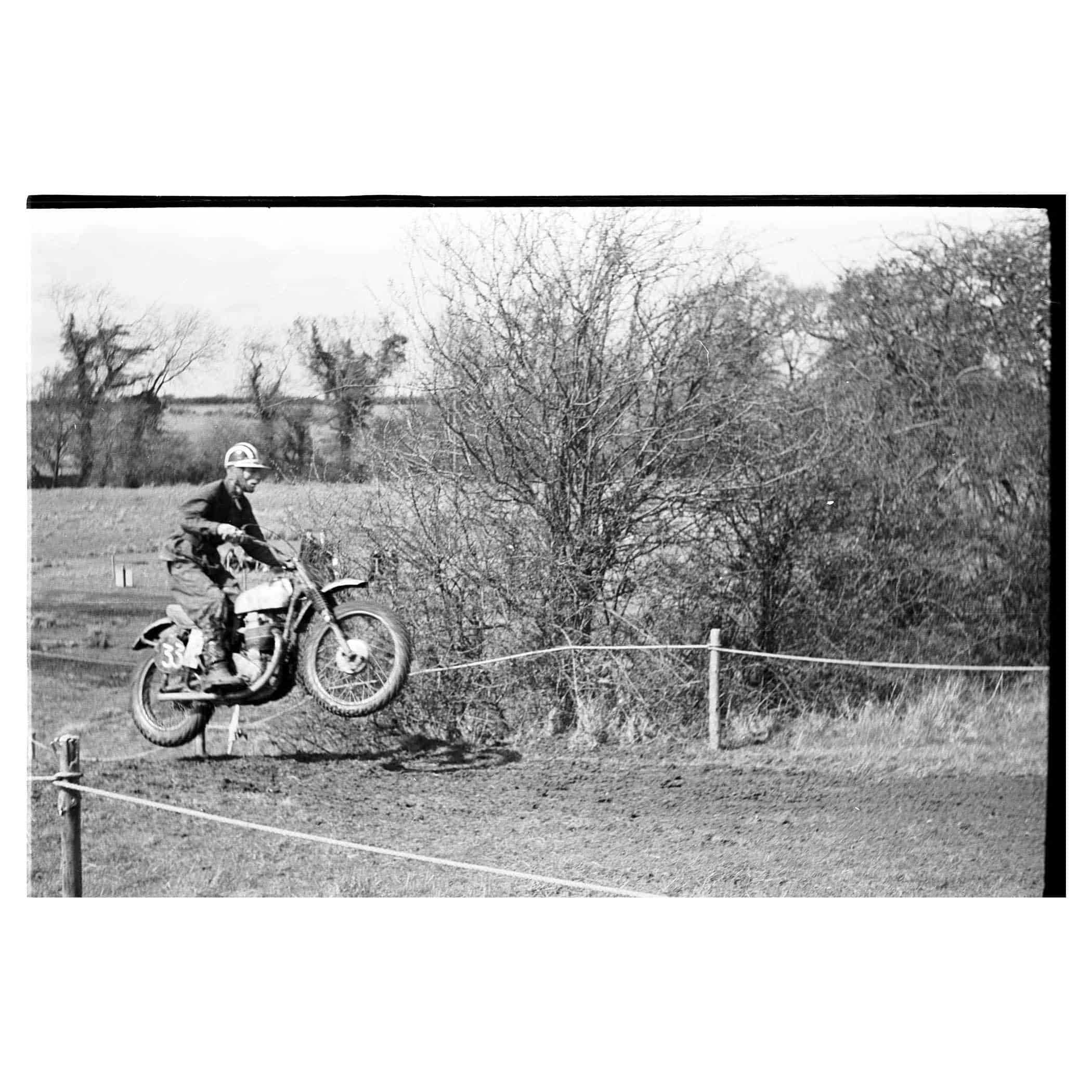
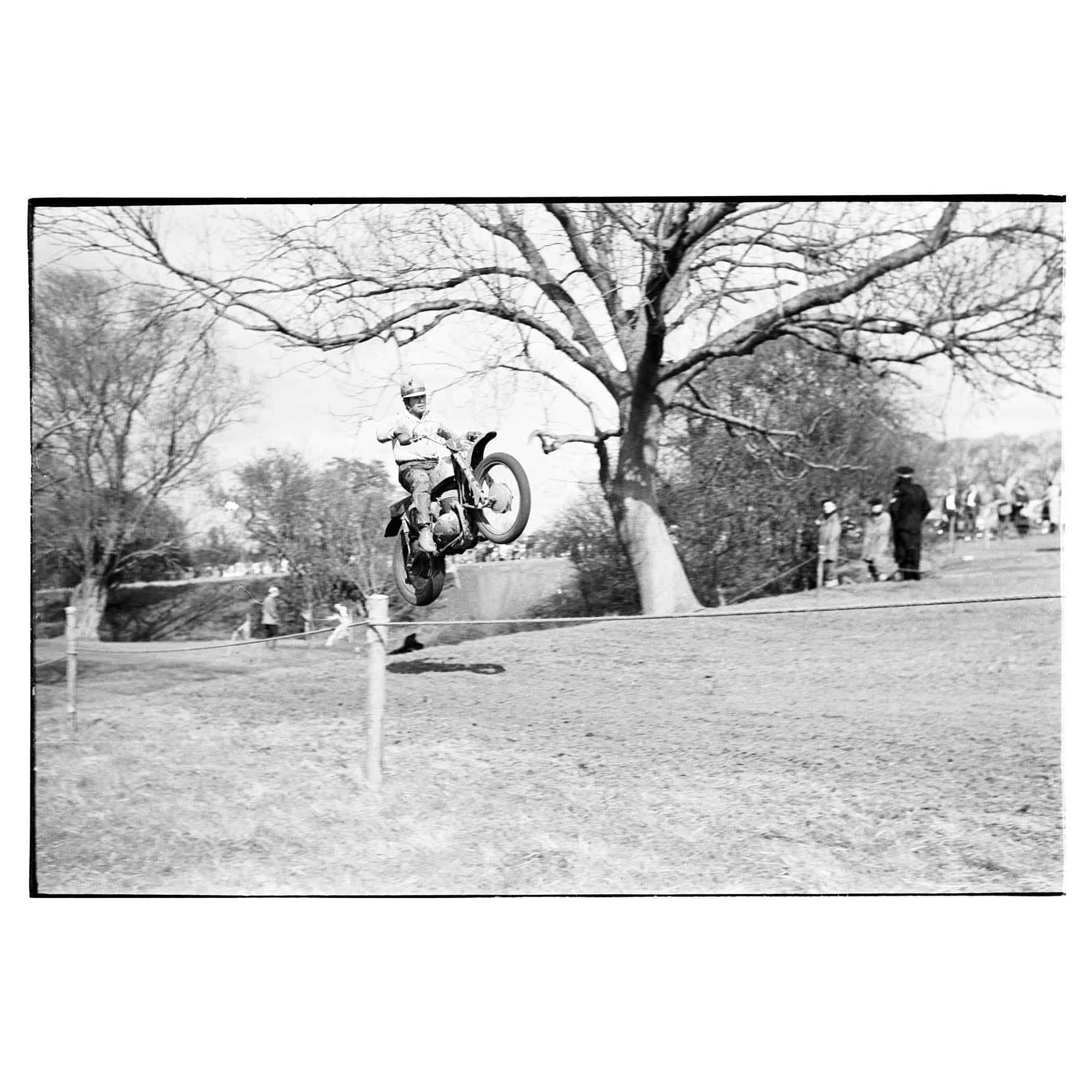
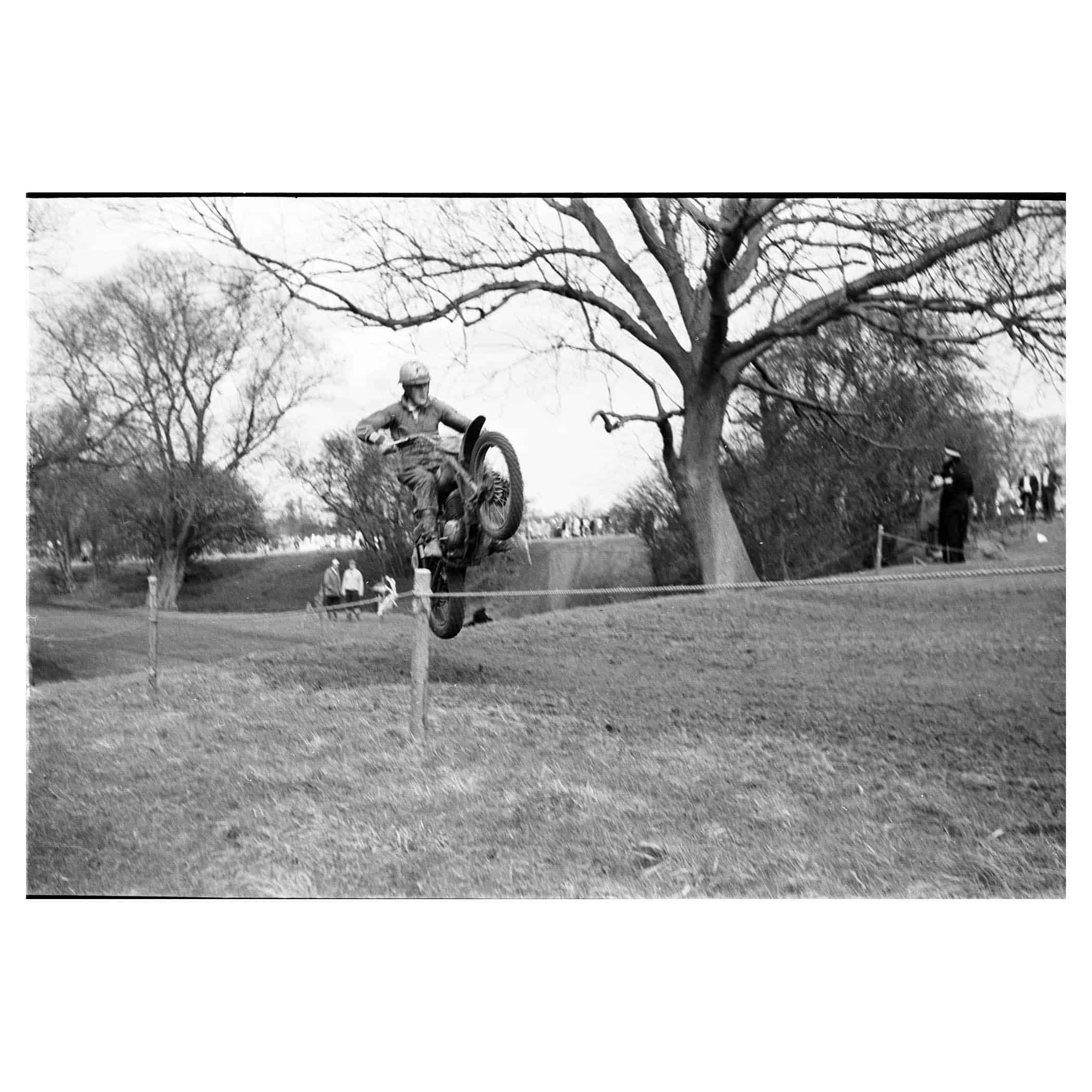
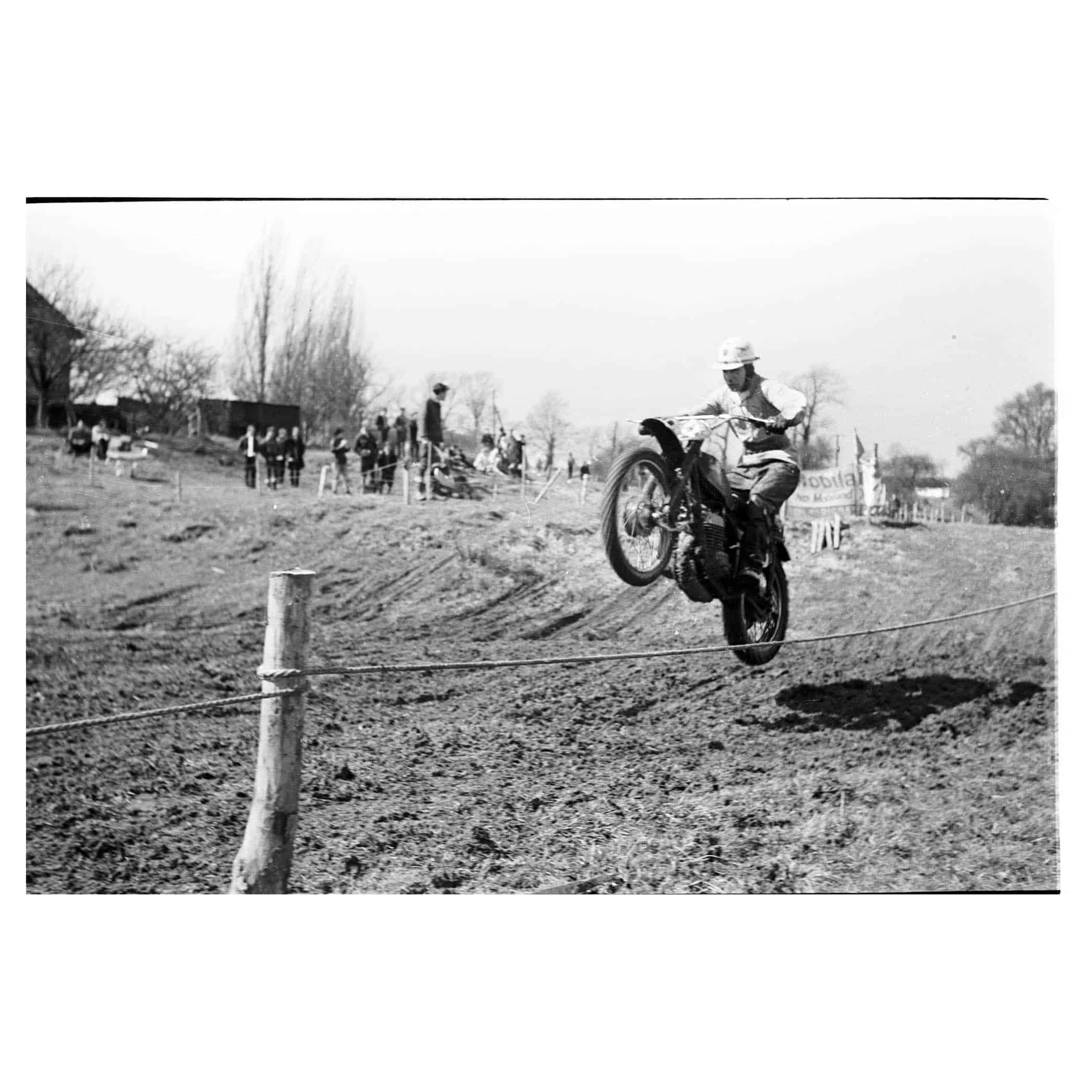
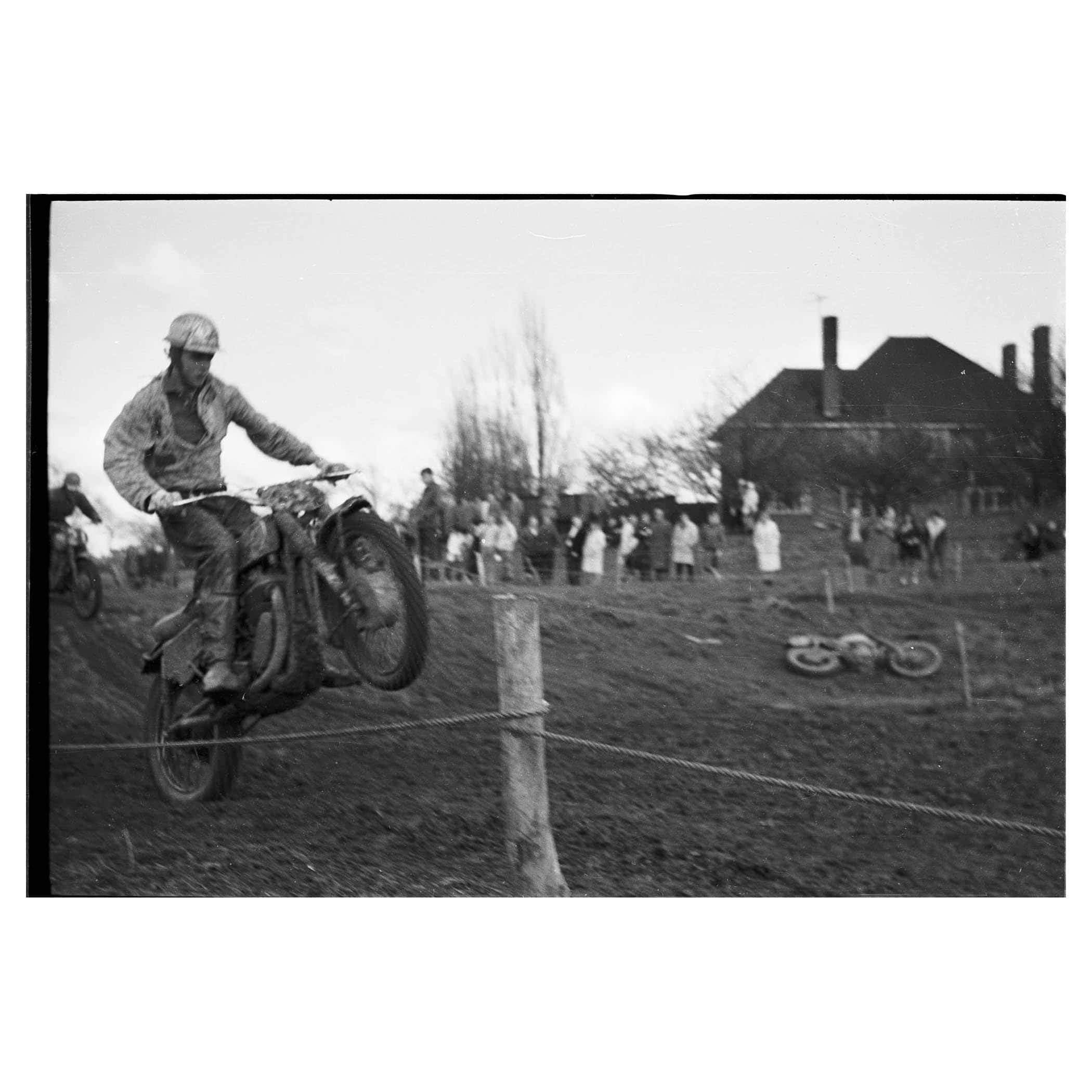


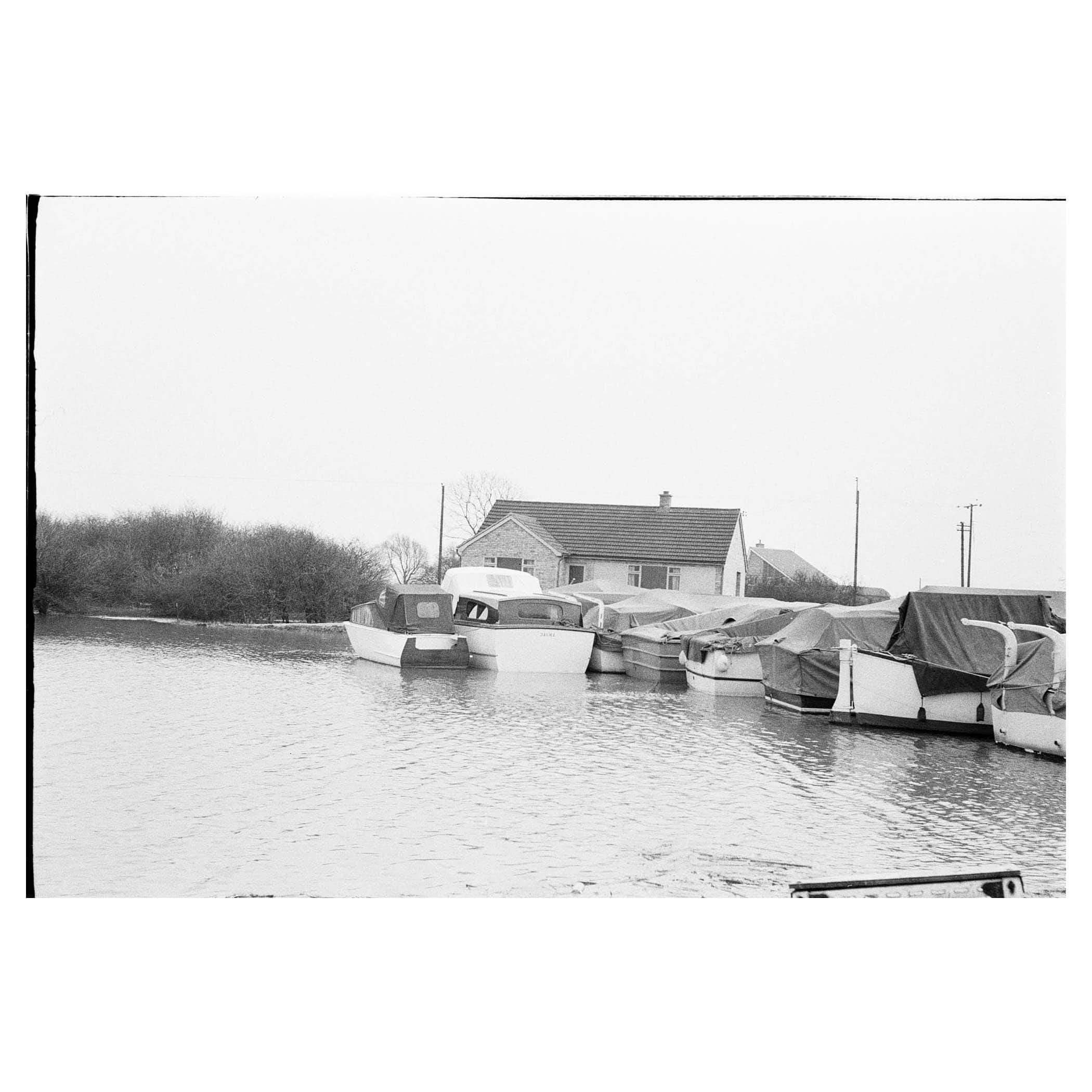
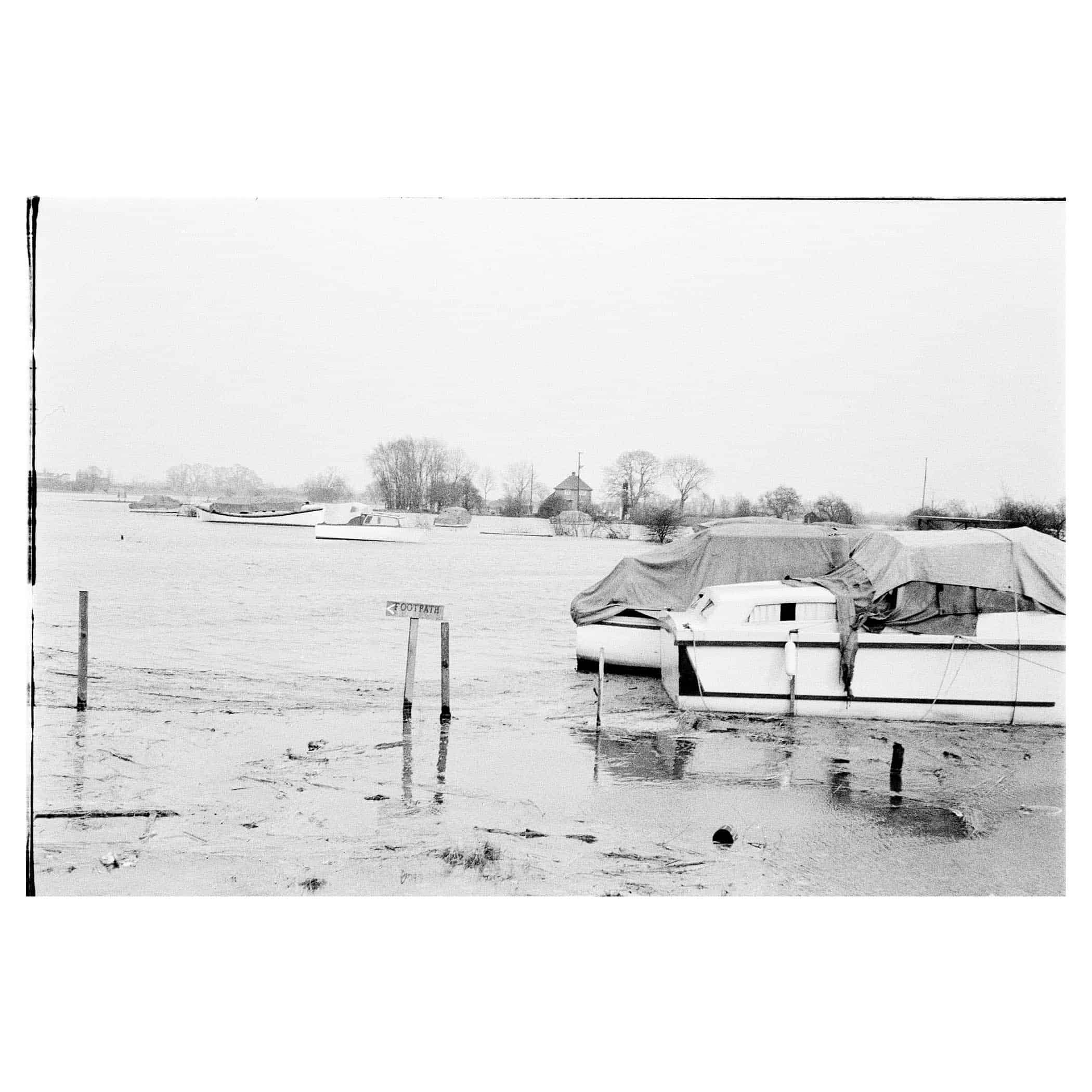

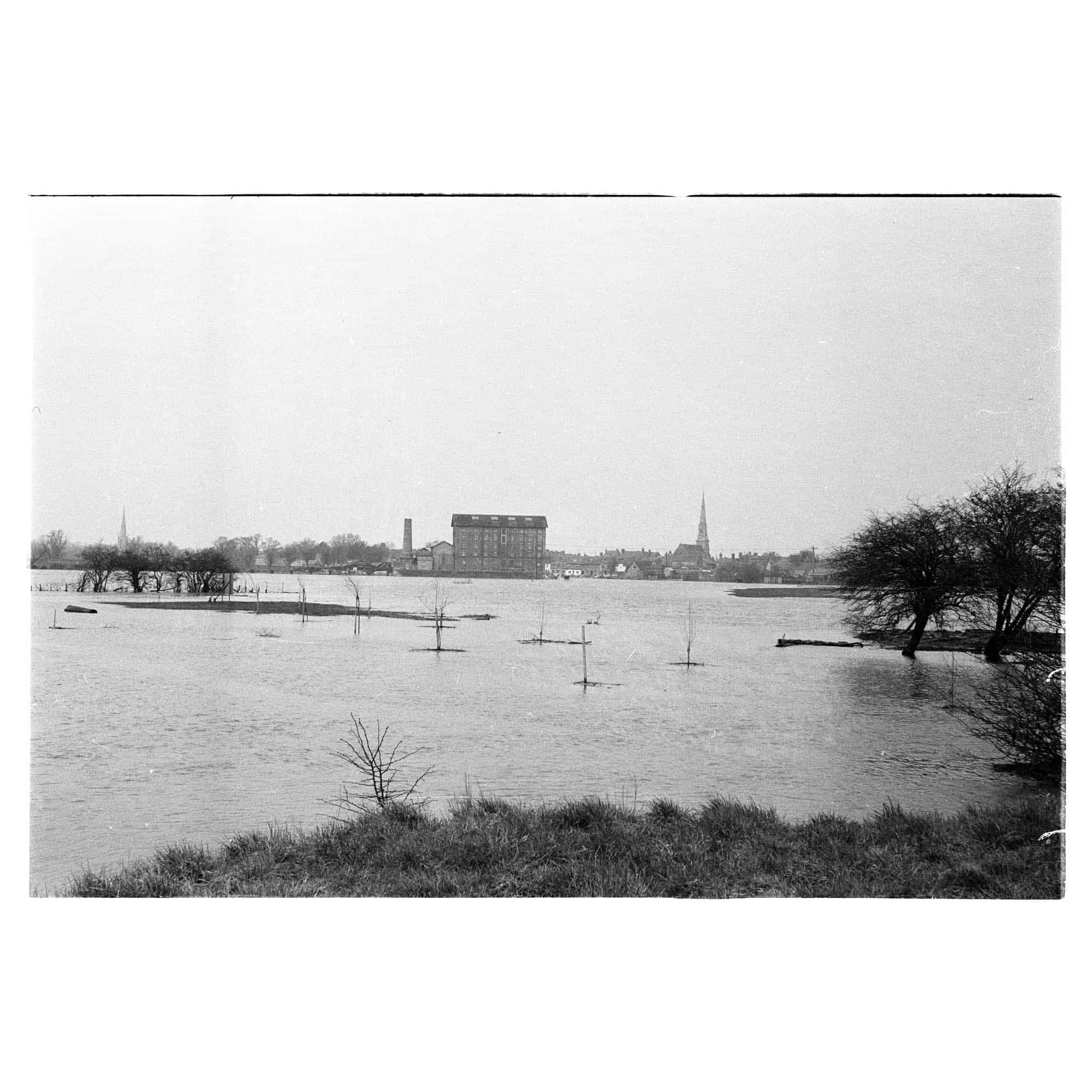


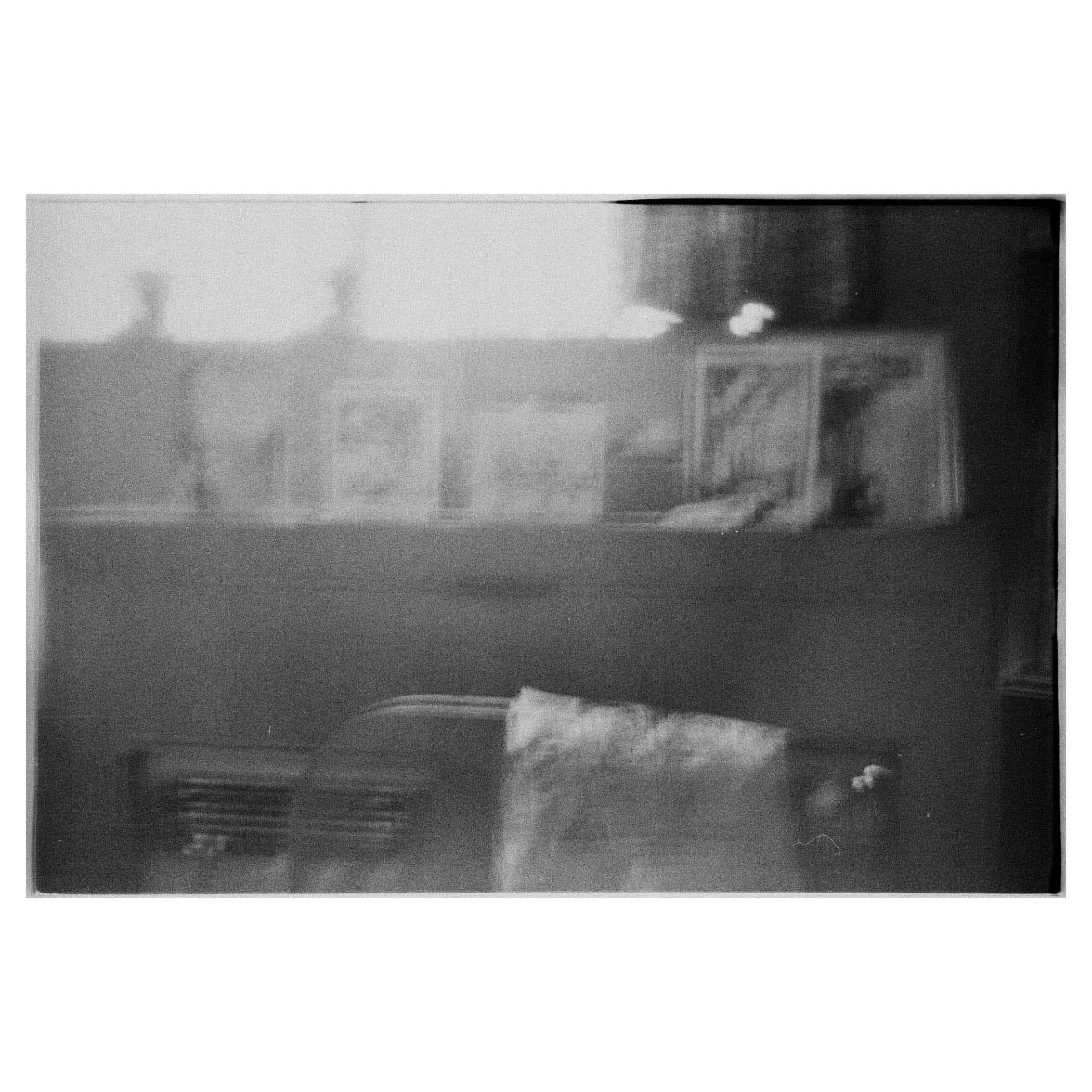
Brilliant. Used to be a press photographer in the early 80s – lots of film and paper and time in the darkroom to do that magic. The motocross shot is really really good (I own a 67 Triumph, so look at lost of classic bikes) the others also carry weight and time. I must get scanning and printing again.